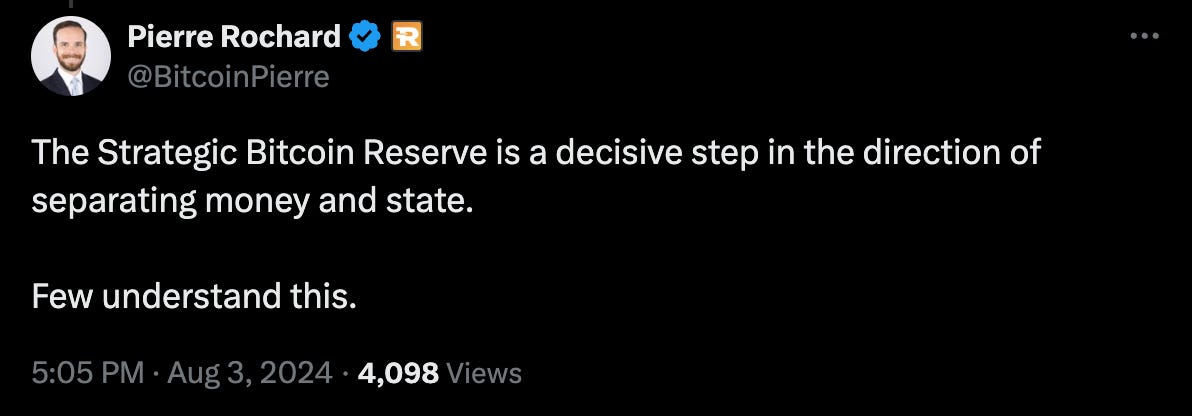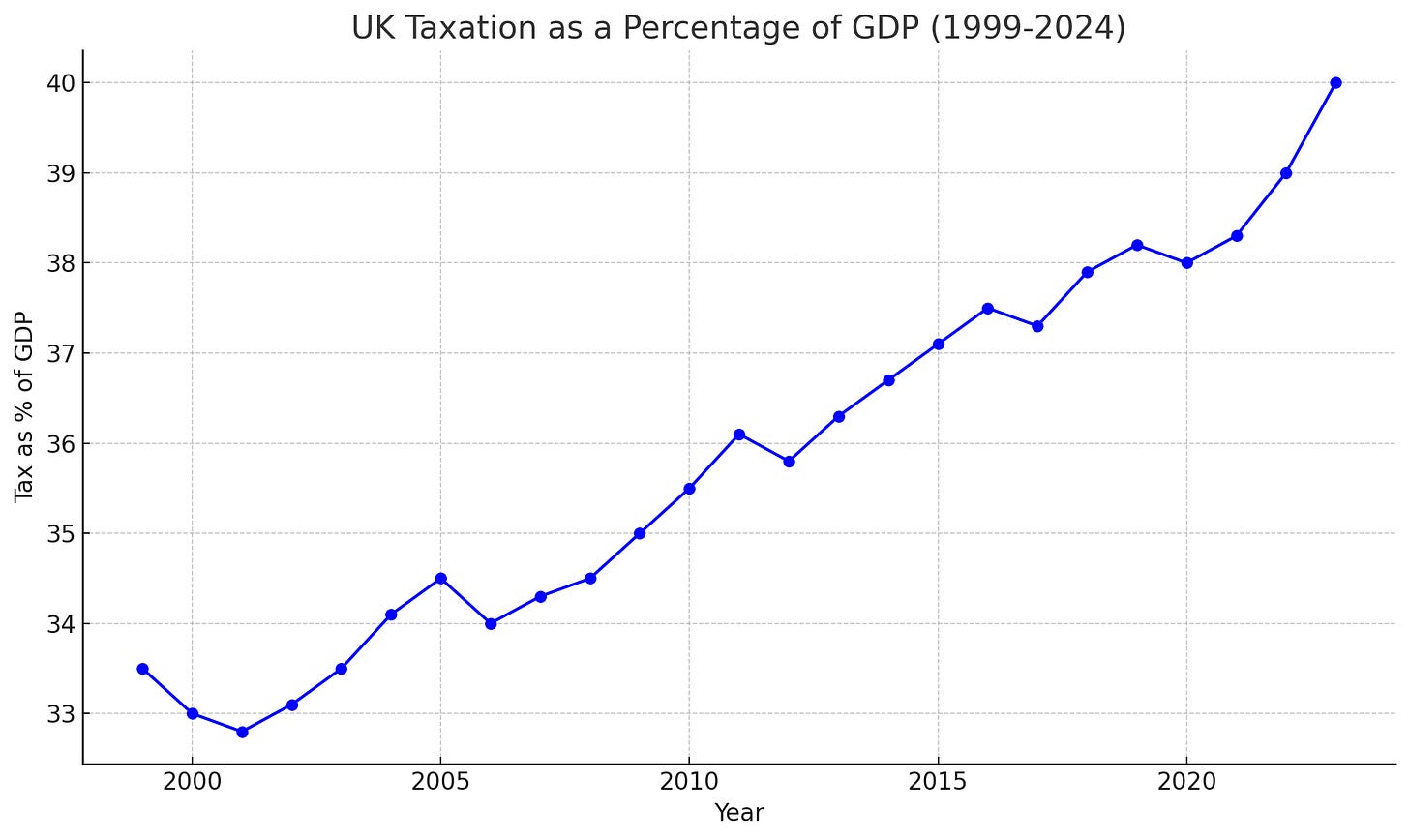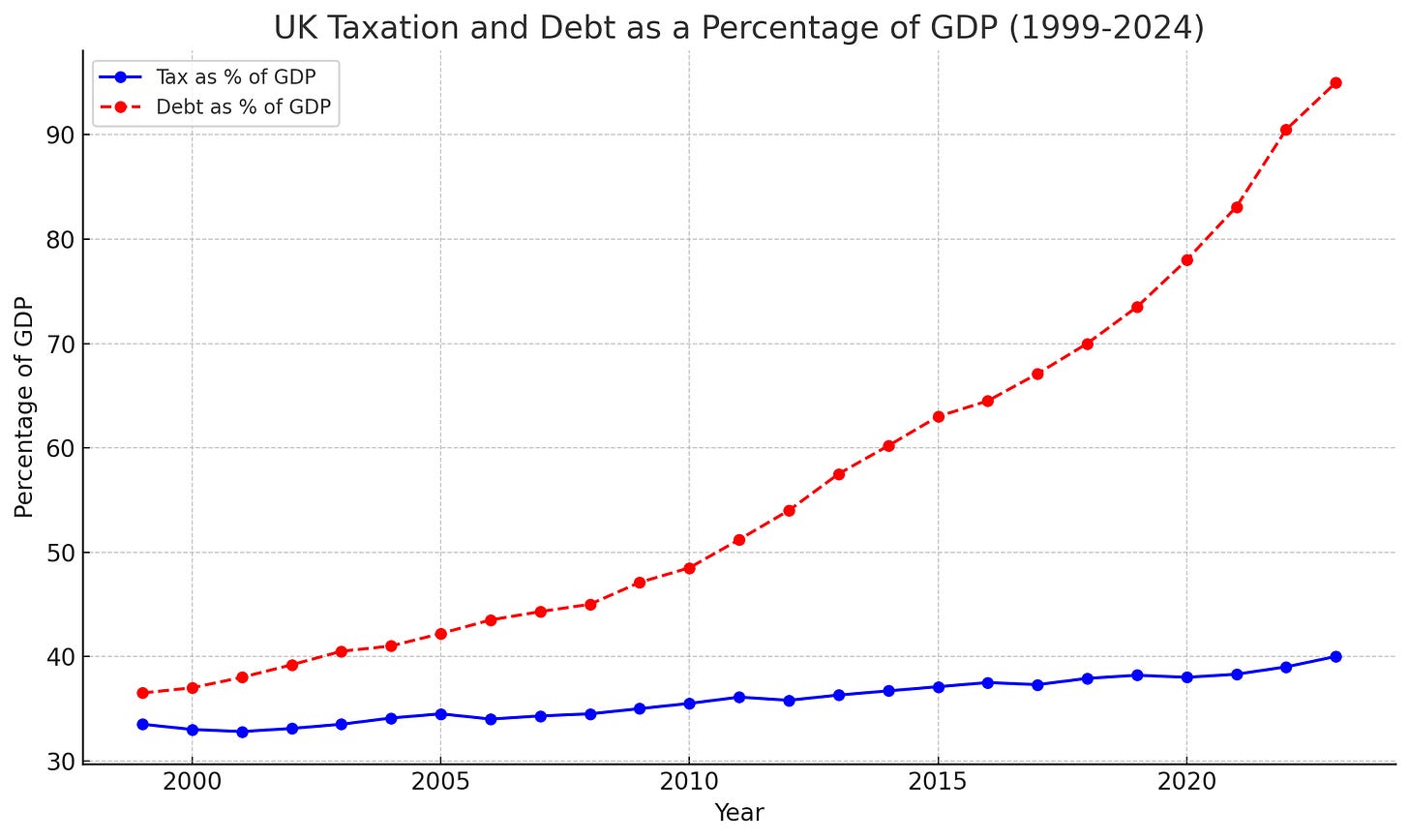Today, I released a new podcast episode, "The Separation of Money and State," a concept that may seem radical to those who haven’t studied money. It can be hard to imagine a world where the government doesn't issue and control money, as it's the only system we've ever known. But, like the separation of church, which began during the Enlightenment, the separation of money and state isn’t just necessary—it’s inevitable. And once you understand Bitcoin, you’ll realise this concept isn't radical; it's a vital solution to the growing problem of government control over money.
First the Church, Then the Money
The separation of church and state was once itself considered a radical idea. For centuries, the church held influence over many governments—shaping policies, laws, and often blurring the boundaries between spiritual leadership and political control. But this relationship led to corruption, abuse of power, and the erosion of personal freedoms. The similarities to today’s relationship between money and government are striking.
Thinkers like John Locke argued that the state should not enforce religious orthodoxy or meddle in matters of faith. This intellectual shift led to the principle of keeping church and state independent, ensuring both religious freedoms and a more accountable government. Although this change occurred gradually, it was a crucial step in societal advancement. And just as the Enlightenment revealed the dangers of intertwining religion and government, today we are witnessing the harmful consequences of government control over money: a path toward increasing authoritarianism.
Bitcoin Enlightenment
A modern-day enlightenment is being driven by Bitcoin thinkers such as Pierre Rochard and Jeff Booth, who challenge conventional financial and political systems through the lens of Bitcoin. Much like the original Enlightenment, which fostered critical thinking and philosophical advancement, this movement promotes self-sovereignty, particularly in the field of money.
These Bitcoin thinkers argue for a society free from the control of governments and central banks, where financial power is returned to individuals. Aligning with the principles of Austrian economics and libertarianism, they advocate for a transparent system that enhances personal freedom.
And that system is Bitcoin, an invention which represents not only a technological innovation but a profound moral and philosophical leap towards a more liberated society.
Fiscal Madness
The fiscal irresponsibility we are witnessing today serves as clear evidence that the state's monopoly over money must be challenged. In a democracy, the government's role is to represent us, its citizens, not to exploit or oppress us. While many of us begrudgingly accept taxation, Libertarians will tell you it is a form of slavery from which most of us have no escape. There may be ideological differences with describing taxation as slavery but when the tax burden is so high that all disposable income is lost, what, and more importantly, who are we working for?
Governments, with little accountability, are free to raise taxes perpetually. The chart below illustrates this trend, showing how taxation in the UK as a percentage of GDP has risen steadily since the early 2000s, from a low of under 33% in 2001 to an alarming 40% today (this 7% rise represents a 21% relative rise).
The picture gets much worse when you also consider government debt as a percentage of GDP, (as shown below in red). Not only are we being taxed more heavily, but the government's fiscal madness has led to ever-increasing borrowing. And for what benefit? With NHS waiting lists growing and public services in decline, you have to ask the question: where the fuck is all the money actually going?
The Problem is Government
Administration after administration, regardless of party, follows the same reckless fiscal path. They keep getting away with it because we continue voting for them—not because we believe in their solutions, but because they promise to be better than the previous disaster. The result? We’re left with equally, if not more, ineffective government.
The truth is, the government doesn’t produce anything. As my friend Harry Sudock said, they are nothing more than vultures, kneeling on the necks of the productive class. So what is the answer? Some of my anarcho-capitalist friends want the abolition of government altogether, I’m more pragmatic and think we can target something more realistic: reducing governments size. We can start this by separating money from the government—a step we can take without asking their permission. Radical? Sure, but once upon a time, the separation of church and state was considered radical too.
The eventual separation of Church and State wasn’t just a bold step; it was essential. Now, we find ourselves in a similar situation with money. Just as the church once monopolised power, governments today have a stranglehold on money. This is where the idea of separating money from state comes into play. It might seem impractical at first, but the more you explore it, the clearer it becomes that it’s not just a novel concept—it’s an absolute necessity.
Take seigniorage, for instance—the profit governments make from issuing currency, which is essentially a mechanism of exploitation. History has proven, time and again, that no government can resist the urge to abuse this power. By constantly printing money, governments devalue the currency, impoverishing the public. A separation of money from state would compel governments to balance their budgets. They could no longer rely on money printing to finance wasteful expenditures or endless wars. They’d have to compete in the free market, delivering better services because they’d finally have to earn their revenue.
Conclusion
Bitcoin is the vehicle that makes the separation of money and state not just possible but inevitable. In countries like Lebanon, Argentina, and Turkey—where inflation has trodden its destructive path—people have turned to the US dollar to preserve their wealth. But others are turning to Bitcoin.
The separation of money and state isn’t just a future possibility; it’s happening right now. Bitcoin is here, and it’s already reshaping the world. Once you understand why this shift is underway, you’ll realise why sovereign currencies are doomed.
This is more than a financial revolution—it’s a societal one. And nothing stops this train.
Use of AI
I use ChatGPT for:
Checking spelling, grammar and language
Research
Support in fact checking
I do not use AI to develop or write my arguments, these are all my own independent thoughts.
Mr Obnoxious Podcast
If you would like more content like this, please checkout my podcast, Mr Obnoxious.







Great article Pete. I think as you expand this further covering war is another angle. I had the most profound experience at Bitcoin 2024 in Nashville. Way off in a corner of the conference hall they had the Veterans Booth/room. At the time I didn't read the syllabus but only had the fiesta pass and couldn't get into anything else. I thought it was a bunch of people who had been in Bitcoin a long time. It was actually military veterans for Bitcoin. I got to talk to a few and I asked them, "what is the interest of a veteran in Bitcoin". One gentleman's answer was, "I'm sick and tired of my government taking my brothers and sisters and grinding them up like dust, chewing them up and spitting them out for war."
It was the most profound thing and it defined the conference and solidified my belief in the problem is the government. Thank you for putting that moment into even stronger context with your article today.